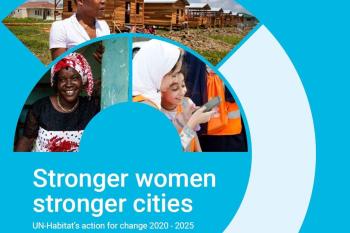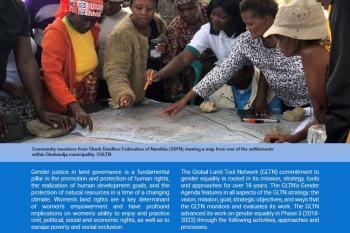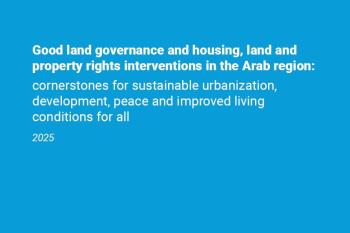
Read More
Stronger women stronger cities: UN-Habitat’s action for change 2020 – 2025
This publication presents a summary of UN-Habitat’s gender equality impact over the past five years, in line with the Beijing reporting cycle.

Throughout history, conflicts have been waged over land. Confrontations over territory, border disputes, the illegal occupation of the territory of one state by another or grievances stemming from inequitable access to land resources invariably have had dramatic consequences for human settlements.
Never before has this been truer than with today’s very different types of conflict which tend to take place within nations rather than between them. While the humanitarian response of the international community to internal conflict is constantly improving, the question still remains of what we can do to help the victims to restore their homes and livelihoods. The answer lies in large part in sustainable human settlements planning and management. But, the rapid restoration of homes and livelihoods so that normal peacetime processes of sustainable planning and management can operate is complex and difficult to achieve. In particular, it requires that humanitarian relief operations be conceived from the very start as a bridge to development.

This publication presents a summary of UN-Habitat’s gender equality impact over the past five years, in line with the Beijing reporting cycle.

GLTN’s institutional commitment to gender equality and secure land rights for women and girls has been at the core of its work since inception in 2006.

The booklet ‘Good land governance and housing, land and property rights interventions in the Arab region’ collects the key recent land, housing and property rights-related projects and initiatives